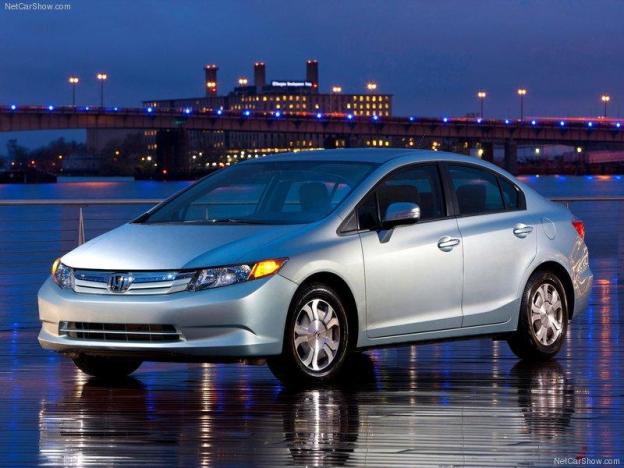 A car’s environmental impact cannot be expressed by a window sticker. The effect automobiles have on the environment is a major concern, but there is no easy solution to this problem. Take hybrids, which seem like the perfect compromise between environmental consciousness and practicality. They run on electricity, which saves gas and cuts emissions, but there is still a good old internal combustion engine as a backup. There’s one problem, though: what happens to a hybrid when it needs to be scrapped? Honda has an answer.
A car’s environmental impact cannot be expressed by a window sticker. The effect automobiles have on the environment is a major concern, but there is no easy solution to this problem. Take hybrids, which seem like the perfect compromise between environmental consciousness and practicality. They run on electricity, which saves gas and cuts emissions, but there is still a good old internal combustion engine as a backup. There’s one problem, though: what happens to a hybrid when it needs to be scrapped? Honda has an answer.
Many hybrids are powered by nickel-metal hydride (NiMH) batteries. They are used in all of Honda’s hybrids, and the non-plug-in Toyota Prius (“extended range electric” cars like the Chevy Volt and Fisker Karma use lithium-ion batteries). Nickel-metal hydride batteries have more charging capacity and better durability than the lead-acid batteries that powered the first electric vehicles, but they can damage the environment in their own way.
The nickel in NiMH batteries forms the positive electrode, while the negative one is a compound of different rare earth metals. The demand for car batteries could potentially exhaust the supply of those metals. In addition, the mining process and the need to transport raw materials from mines to car factories adds to a hybrid’s carbon footprint.
Honda’s solution is to recycle the rare metals from old batteries. Honda worked with Japan Metals & Chemicals to develop a process that, the company claims, will extract 80 percent of the material from used batteries. The company also says that the recovered metals will be as pure as newly mined material. The products of this recycling process could also be used in other applications that require rare earth metals. Honda will recycle metals from hybrid vehicles sold worldwide.
The first Honda hybrid, the original Insight, went in sale in 1999; many of these earlier models are nearing the ends of their lives. For now, Honda will only recycle worn-out or defective batteries that are replaced by dealers.
Recycling hybrid car batteries makes perfect sense, considering what happens to the rest of said car when it is no longer usable. Scrappers sell the steel, copper wiring, and even the titanium in catalytic converters, at commodity prices. Yesterday’s Chevy Lumina becomes today’s refrigerator; bits of its wiring harness could be in your laptop. Honda already recycles other parts, including oil filters and bumpers, that get repaired by its dealers. Recycling the rare metals in in a car’s batteries seems like a logical next step, and a great way to make the hybrid into a truly green ride.


